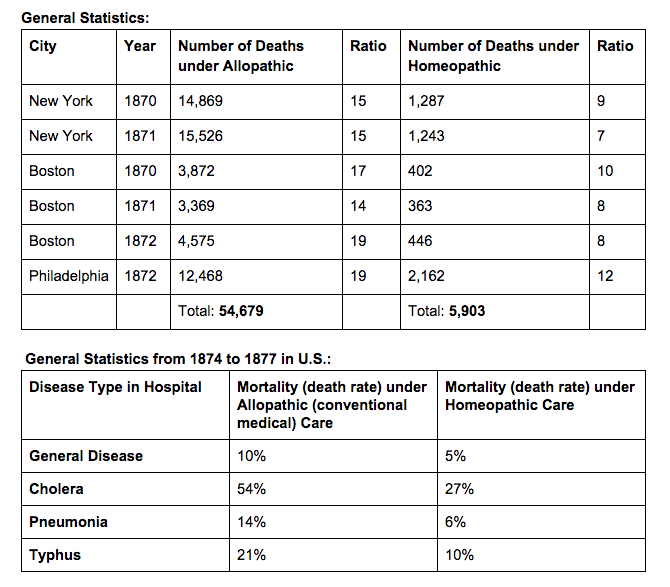 The media has been abuzz about homeopathy lately now that the FDA is re-evaluating their regulation of homeopathic products. In the initial testimony in April 2015, Michael De Dora of the Center for Inquiry in Washington DC said about the effectiveness of homeopathy:
The media has been abuzz about homeopathy lately now that the FDA is re-evaluating their regulation of homeopathic products. In the initial testimony in April 2015, Michael De Dora of the Center for Inquiry in Washington DC said about the effectiveness of homeopathy:
“We could spend hours discussing the extensive, decades-long scientific examination of homeopathy, but suffice to say the empirical evidence against homeopathy is overwhelming: aside from a placebo effect, homeopathic products have no effect in treating illness.”
And actually, as a homeopath, I agree with Mr. De Dora. That might sound contrary to what one would expect from an article written by a homeopath, but he’s right. The “empirical evidence” about homeopathy doesn’t show any effect in treating illness. But there’s a great reason for that.
But first, here are some things to consider about homeopathy:.
Homeopathy has been used for the last two centuries with great success in a variety of settings. Most recently in the Western world homeopathy is used as an add-on medicine in addition to other therapies. Historically in the U.S. and more recently in other cultures, homeopathy has been used as the primary level of care to help with everything from acute illnesses like colds and flus to chronic diseases like Multiple Sclerosis and anxiety. It has even been used during epidemics and pandemics (there’s a fantastic presentation on homeopathy and epidemics here), with historically documented high success rates often higher than those of the drug therapies at the time. At the bottom of this article, I’ve included a table once presented by the famous Dr. Kellogg showing the rate of death under allopathic (mainstream) and homeopathic medicine in the 1800s.
Modern allopathic medical research works like this: A group of people with the same condition are gathered, let’s say for instance people with gastroesophageal reflux disease (GERD). This group of people all have different symptoms. Some feel burning, some don’t feel any burning but have a cough. Some have difficulty swallowing. Nonetheless, they all have GERD. To test a therapy all of these people are given the same drug for the same length of time, and symptoms are tracked. This all makes sense for testing a pharmaceutical drug.
Homeopathic remedies work differently however. Remedies are not selected based on the diagnosis, but rather on the whole symptom picture of a patient, from their sleep patterns, moods and energy levels to other conditions they may have. So giving a GERD patient with burning pain and a GERD patient with difficulty swallowing the same remedy won’t work. It won’t ever work. And yet, modern science continues to try to evaluate homeopathy the same way it would evaluate a pharmaceutical drug.
Sadly in the mainstream medical model, clinical results for these tests are not considered at all. The FDA isn’t actually asking anybody what type of results they got with homeopathy. They aren’t looking at the tremendous body of research that does support the effectiveness of homeopathy because that research isn’t conducted in the way that suits the modern medical model. The FDA is essentially saying that if they can’t see results by testing it in the same ineffective way over and over again, then it doesn’t work. It’s a lot like picking up a pair of glasses that belong to someone else and saying if you can’t see clearly through those glasses, then all glasses aren’t effective.
Homeopathy tends to be confusing to many since other natural medicines often get lumped under the category without having anything to do with it at all. Homeopathy is a specific medical system using an extremely diluted, specially prepared natural substance. The right homeopathic remedy for a person is chosen based on the symptoms that a toxic dose of that original substance would produce. For example if you have symptoms of a high fever that comes and goes in a three-day pattern like malaria, then a tiny dose of the toxin quinine, which produces those same symptoms, can help your body to do what is needed to resolve those symptoms. This is actually very similar to what we do with modern vaccinations. We use a tiny dose of something that would cause those symptoms to help your body resolve those symptoms.
The FDA also made the statement that there are cases of children being poisoned by homeopathic remedies. I find this interesting, because the doses of actual substance in homeopathic remedies are too small to ever cause a toxic reaction, even if an entire bottle of the remedy was consumed. The nature of the way homeopathic remedies are diluted would make this physically impossible, which makes me wonder if the FDA is interested in accurate information about homeopathy at all, or if its interests lie elsewhere.
Tables presented in 1873 by the famous Dr. E. Kellogg for New York, for Philadelphia by Dr. P. Dudley, and for Boston E. Russell. The following table is a summary of their general statistics published in the journal The Medical Investigator.

by Amy Neuzil, N.D.
